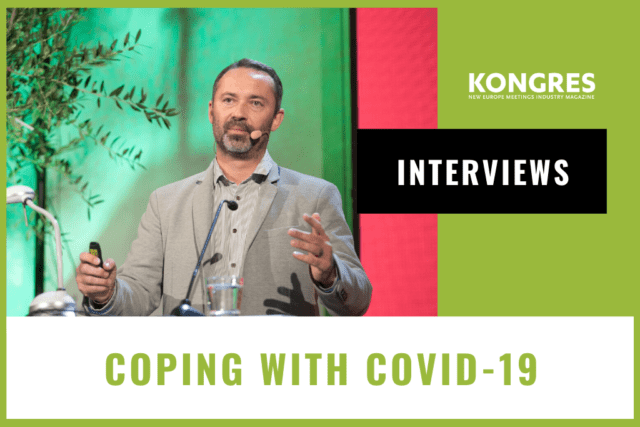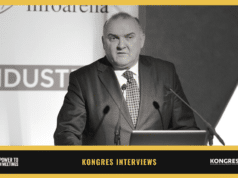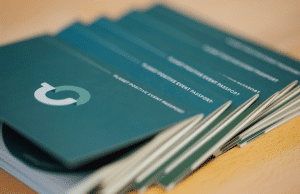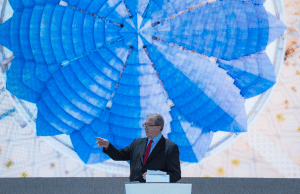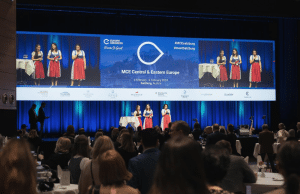In these challenging times, Kongres Magazine is trying its best to provide meeting planners with the most relevant and useful information regarding the spread of COVID-19. We also want to share opinions from key members of the meetings industry.
We asked key opinion makers from the meetings industry for their thoughts on the situation and how they are coping with COVID-19.
JAKA GORNIK, founder and CEO at FM
ADJUSTING FOR A NEW NORMAL
Q: How do you feel about the restrictions that European governments have implemented to contain the spread of COVID-19?
I think that the restrictions accepted by the Slovenian Government were appropriate measures. From my point of view, European Governments should work more hand in hand as we are not all at the same level concerning the spread of the virus. We could learn from each other, so at some points, they could already have some key learnings…
Q: What would you compare this situation to?
I think every situation has its specifics, but I expect we might experience an even worse situation than in 2008. The mentioned crisis was caused by the collapse of the US real estate market and some global bank systems. At that time financial institutions were not ready for that, so the economy didn’t get the right support at the very beginning. The situation we are currently facing is totally different. Financial institutions are strong and both ECB and FED are ready to support countries/economies with financial injections. But on the other hand, we’ve never faced the situation where most of the global economy has stopped, so in my opinion that will lead us to an even stronger recession like the one we had in 2008.
Q: Economic consequences for the meetings industry have already started to show, what do you expect government institutions to do?
The Government have just released the first package, which is generally helping employees with some financial support and by that helping the companies to not be forced to fire their employees. At this point, the government is trying to keep the local economy as strong as possible. To be honest, the package was changing from day to day, especially with the rules that need to be met in order to claim financial assistance.
Our event industry was strongly hit by the virus and therefore we are expecting to get more attention in the following packages to help us protect businesses in general and their transformation.
Q: What is your opinion on virtual meetings, as an alternative to live events?
The event industry has an opportunity now to implement a part of the business online. The main advantages of online activities are security, cost-cutting and immediate results. At this stage, our clients are forced to try new solutions. I believe that they will try to optimize the process and also realize that some type of events might have even better results online. The global event industry predicts the fusion of live and online events and I follow the idea as well. So, this won’t be a short-term solution, it will be here to stay.
Q: What precautions/measures are you taking in your company?
We never thought that the virus could do this much damage to our industry. So, our measures were introduced gradually. First, we started working from home and when all of our clients cut the activations by 100%, we created groups inside the company that were responsible to bring projects/ideas that will help adapt to the current situation. We are working on different ideas from digital to our own event projects that will see the light by the end of the year.
Q: What are your expectations regarding the duration of the crisis and when will the situation go back to normal?
It’s hard to say. The research shows that every crisis needs approximately 2 years to recover. Of course, knowing our industry, we will need at least an additional year. But as I explained before, the old normal is gone. We have to be prepared and ready to adapt our business to the new normal – a fusion between online and offline.
Q: How are you tackling the event prohibition? What will the next few months look like for you?
Company-wise we changed the processing and priorities, but client-wise it’s different. We work mostly with international clients and so far, we know we will continue working for all of them. The problem is that they don’t even know themselves what they will do and when and what the budget will be. So, once this is over, they will slowly get into their pace and receive feedback from their HQs about how to proceed. At this point, we moved some of the events from spring to autumn, but some are still on hold.
there is so much potential in bringing an event consortium together and pitching for big international projects
Q: What can we do to help our industry get back to its feet as soon as possible?
The most important thing is that all the players in the industry get together and forget about any resentments. Slovenia has a lot of individuals and companies that could offer great event services anywhere in the world. We need to see the big picture and stop thinking about what’s mine and what’s yours. There is so much potential in bringing an event consortium together and pitching for big international projects.
Q: Are you foreseeing any problems for the meetings industry once the prohibition is lifted?
Of course. As I already said, the event industry was the first to be shut down and is normally the last to start working again. This refers to the Balkan region where BTL is not so strongly supported as in the western world. Pretty much all marketing budgets will be cut and usually, they take it away from the BTL part.
Q: What does this mean for events in the future? What will have to change?
We were trying to show our clients the importance of experiential marketing campaigns during times of prosperity, so hopefully, we could stay in the same proportion with ATL as before the crisis.
There are two important things we will add to our standard event procedures. The first one is security, as people will want to feel safe under all circumstances. The other one, of course, is digitalization, combining offline and online activities where gamification will have a huge role.
Q: Is marketing (digital marketing) in the duration of the pandemic sensible (and appropriate)?
When knowing that physical distance and social gatherings are very important at this time then you already have the answer. If you give a client’s TG the right message during any crisis, you get yourself a long-term believer and follower.
Q: What will happen after we’ve beaten the virus? How will you (re)start your marketing activities?
It’s not entirely up to us. We will have to wait to meet with all of our clients once we are back from the quarantine. My vision is to offer them new, fresh ideas to make their business even better, bigger and adapted to the “new”.
I will also remain a dreamer by thinking to bring a few event professionals together and start offering services also outside our region.
Q: Are you in contact with colleagues from around the world? Have you talked about any potential solutions?
Yes, I am. They are all having different problems, but they are the same at the core. So far, we are trying to get to the key learnings that will offer some solutions and help our business grow. We have weekly brainstorming sessions and to tell you the truth, the ideas are very similar.


